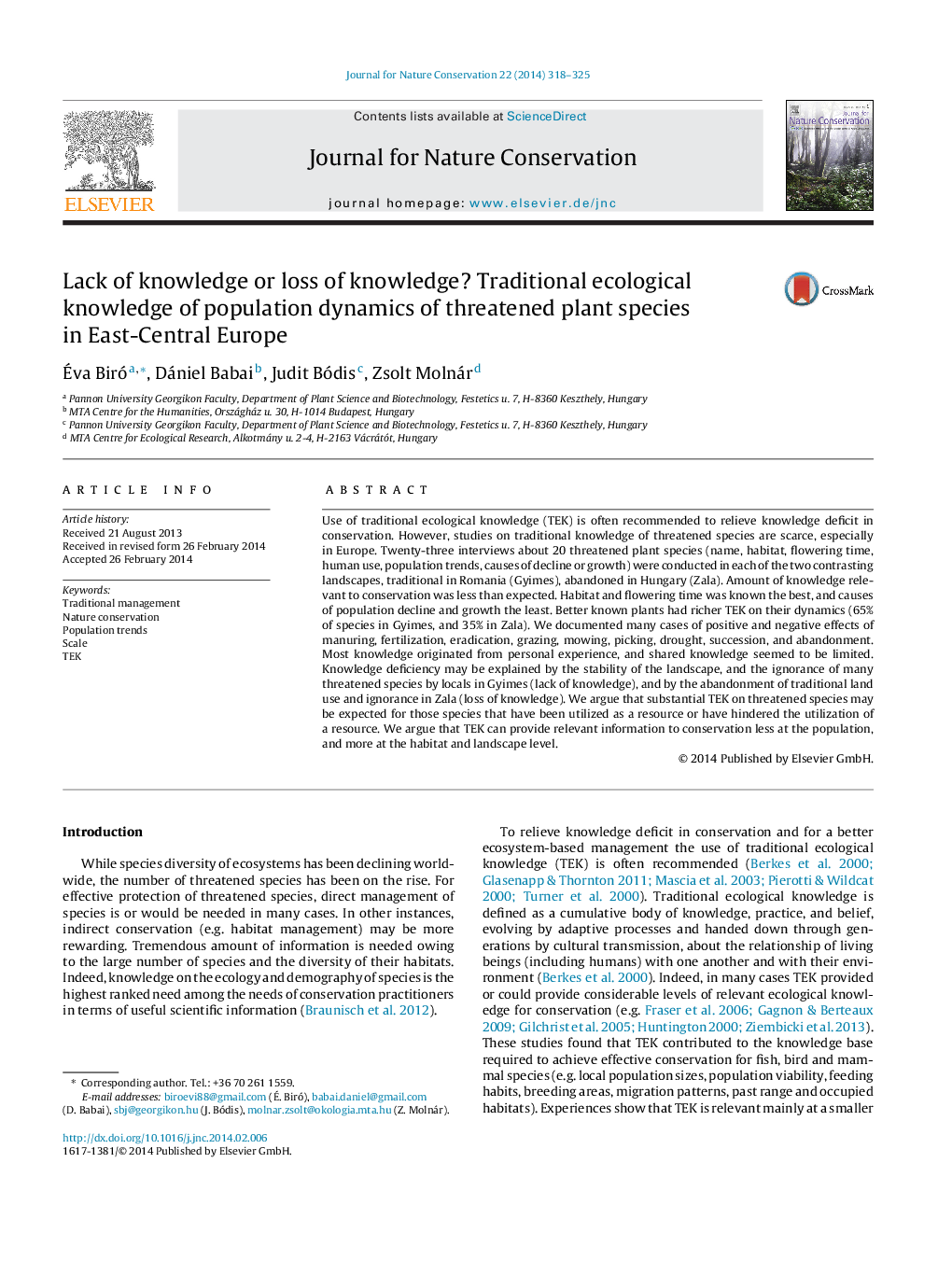| Article ID | Journal | Published Year | Pages | File Type |
|---|---|---|---|---|
| 4399866 | Journal for Nature Conservation | 2014 | 8 Pages |
Use of traditional ecological knowledge (TEK) is often recommended to relieve knowledge deficit in conservation. However, studies on traditional knowledge of threatened species are scarce, especially in Europe. Twenty-three interviews about 20 threatened plant species (name, habitat, flowering time, human use, population trends, causes of decline or growth) were conducted in each of the two contrasting landscapes, traditional in Romania (Gyimes), abandoned in Hungary (Zala). Amount of knowledge relevant to conservation was less than expected. Habitat and flowering time was known the best, and causes of population decline and growth the least. Better known plants had richer TEK on their dynamics (65% of species in Gyimes, and 35% in Zala). We documented many cases of positive and negative effects of manuring, fertilization, eradication, grazing, mowing, picking, drought, succession, and abandonment. Most knowledge originated from personal experience, and shared knowledge seemed to be limited. Knowledge deficiency may be explained by the stability of the landscape, and the ignorance of many threatened species by locals in Gyimes (lack of knowledge), and by the abandonment of traditional land use and ignorance in Zala (loss of knowledge). We argue that substantial TEK on threatened species may be expected for those species that have been utilized as a resource or have hindered the utilization of a resource. We argue that TEK can provide relevant information to conservation less at the population, and more at the habitat and landscape level.
